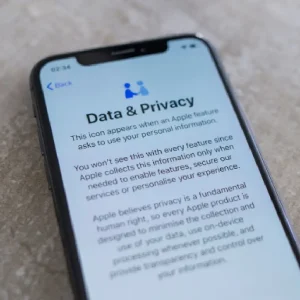
As nearly everyone has a smartphone these days, mobile phone apps have become big business and a host of new ones are launched onto the marketplace every day. Spurred on by growing demand for these software applications, innovators may not be aware of the importance of safe guarding their intellectual property.
-

John Paul Rooney, partner and patent attorney at intellectual property firm, Withers & Rogers
Demonstrating the growing popularity of mobile apps, the international statistics company, Statista, has recently reported that about 270 billion apps were downloaded across global app stores in 2017, an increase from 228 billion in the previous year.
Despite their proliferation, the number of patents filed for mobile apps in the UK is surprisingly low when compared to the United States and other European countries. This could be due to a lack of understanding about the benefits it can bring, which include a 20-year period of exclusivity and/or an opportunity to license the innovation in exchange for royalty payments. Some entrepreneurs may incorrectly believe that it is not possible to secure patent protection for an app. The truth is they are likely to be patentable as long as certain criteria is fulfilled, such as novelty, inventiveness and industrial applicability. Here are some things that software entrepreneurs should consider, when preparing to market a new app.
Why patent?
Once obtained, a patent gives its owner a 20-year period of commercial exclusivity in their chosen market. This can be immensely valuable in the early stages of the business, when sales are growing quickly. The commercial protection provided by a patent also allows a business to expand its profits by taking advantage of tax-relief schemes, such as Patent Box. Obtaining intellectual property rights could also be important if the business is considering a sale or merger in the future and a well-managed patent portfolio can boost a company’s valuation.
Patenting isn’t for everyone
Despite the benefits it can bring for many growing businesses, obtaining a patent may not be right for every business. Entrepreneurs aiming to bring a new app to market quickly may feel that pausing to secure patent protection for their new app could mean they lose momentum commercially. Having said this, undertaking the patent process is not particularly time-consuming or costly, so thorough consideration is required before releasing a new app to the market. An experienced IP professional can assist in developing a strategic approach to intellectual property protection that makes the most of the app’s commercial potential and supports the company’s business plan.
Patent your app early
It is vital for any entrepreneur to consider obtaining patent protection for their app at an early stage. Leaving this decision to the last minute could result in commercial opportunities being lost. For instance, obtaining a 20-year period of exclusivity could provide an opportunity for the business to license its patented technology to third parties in exchange for royalty payments. However, if the app is disclosed in a conversation with a potential third party, prior to securing patent protection, this disclosure could constitute ‘prior art’ and any rights to secure patent protection subsequently could be lost. Early disclosure could also allow companies to copy the invention and compete for market share.
Invest in a patent attorney
Seeking professional advice is probably the best way to get an understanding of how the business might benefit from patent protection; taking account of the pros and cons. A patent attorney will be able to advise on whether the app is patentable or not, as well as advising on how and when to go about it. When preparing an application, the exact wording used to describe the app and the way it works is important and should take account of the fact that the innovation is likely to continue to evolve after its release onto the market.
Pivot your app
‘Pivoting’ is a practice which allows developers to modify their app whilst continuing to benefit from any existing patent application. In order to do this, the terms used in the patent application should be kept as broad as possible; focusing on the software’s technical effect, rather than its specific use. If broad terms are used, the patent is likely to remain commercially useful for longer. For example, the social media platform, Pinterest, was originally known as a mobile shopping app called ‘Tote’. Even though the company changed its name quite early on, by pivoting its patents however, it escaped the need to apply for commercial protection twice.
Protect your brand name too
Entrepreneurs should also consider protecting their brand name with a registered trade mark as soon as possible.This is important because as businesses grow, their brand identity becomes more and more important and has a growing influence over buying decisions. Failing to do this, could allow third parties to establish themselves in the same markets, under the same company name, without any risk of infringement action.
In summary, it is important that app developers take intellectual property protection seriously and weigh up the pros and cons at the earliest possible opportunity. Taking the right steps, at the right time, could open the door to commercial opportunities and secure the company’s business plan for an extended period of time.







